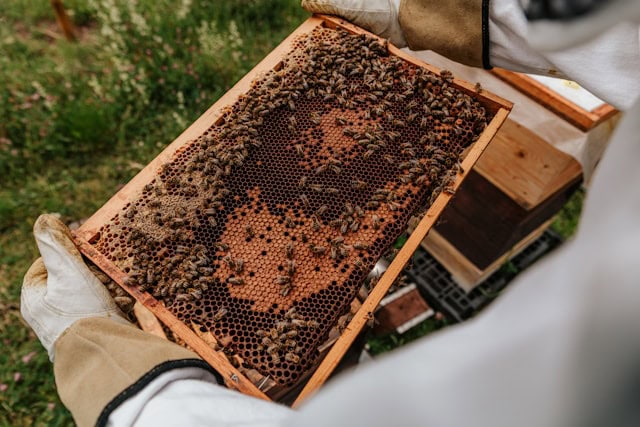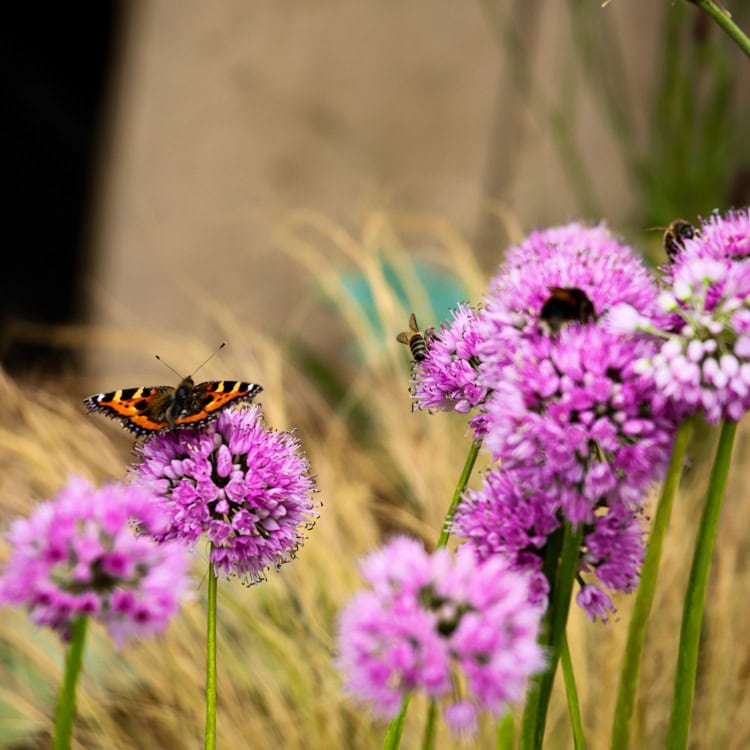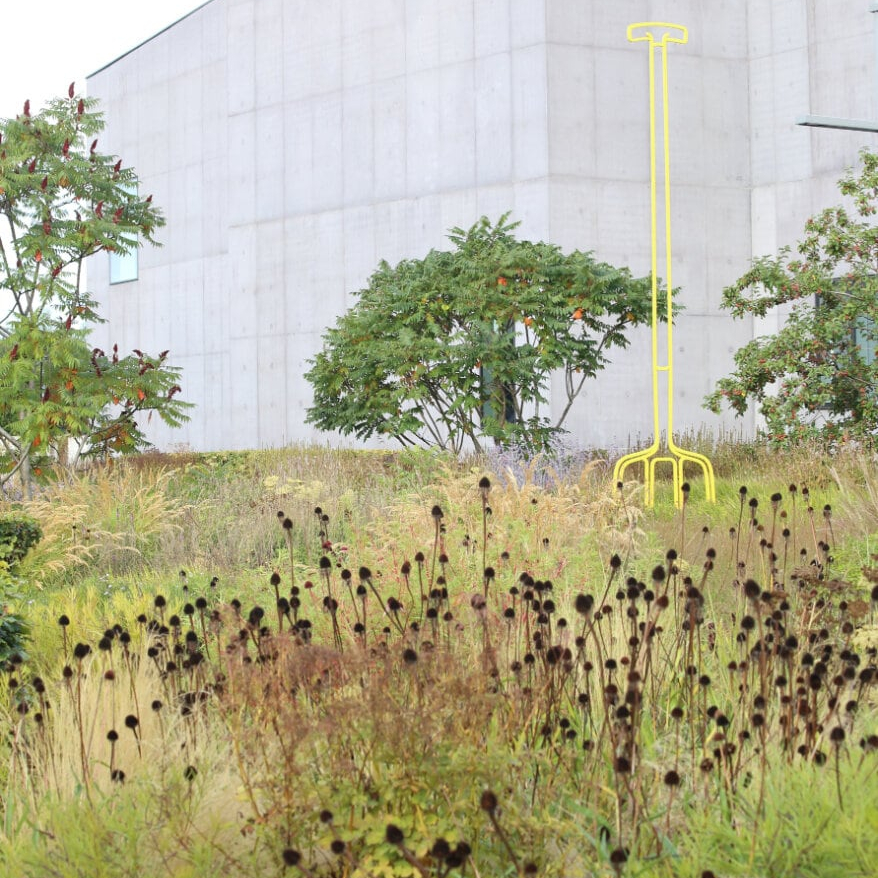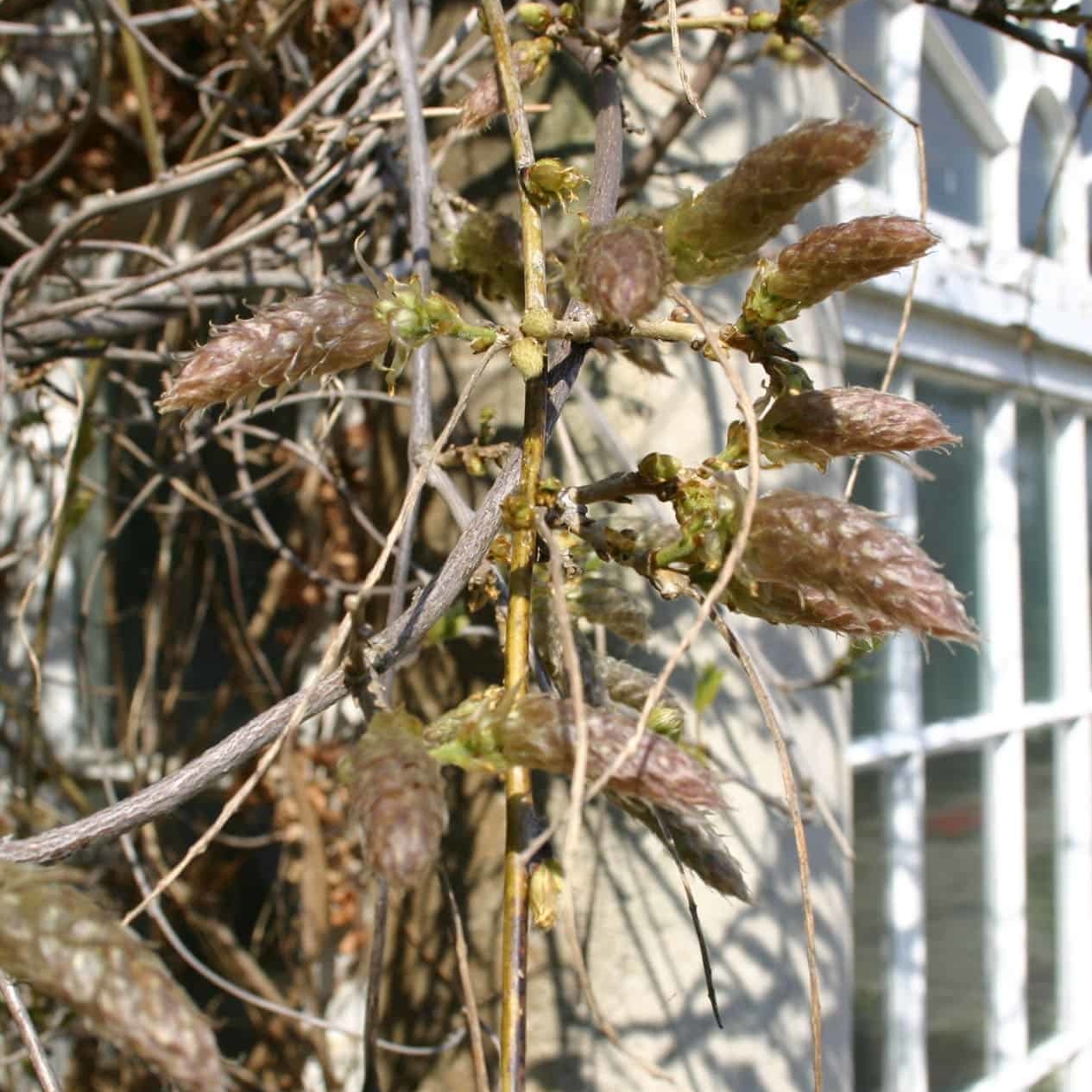Does beekeeping help save the bees?
Many of us want to “save the bees”. Keeping a honeybee hive often seems like the perfect way to do it. It’s rewarding, you get honey, and you’re helping pollinators, right? Well, it’s a bit more complicated than that; having more honeybees might not always be the best thing for all our bees.
When people talk about beekeeping, they’re almost always talking about the European honeybee. These amazing insects are super efficient and live in huge colonies. But they’re also a domesticated species, essentially they are livestock, managed by humans for honey and crop pollination. The crucial thing to remember is that these aren’t the 270 different wild bee species native to the UK – like the fuzzy bumblebees or the solitary mason bees.
To put it bluntly, keeping honeybees to save the bees, is like keeping chickens to save the birds!
What’s the issue?
Here’s the main challenge: competition. Imagine your garden is a restaurant with only so much food. A honeybee hive can have tens of thousands of hungry mouths. These huge, active colonies can gobble up a lot of the nectar and pollen, leaving less for our smaller, often solitary wild bees. Studies have actually shown that in areas with many honeybee hives, the number and variety of wild bees can sometimes go down. This is because they’re simply outcompeted for food. If wild bees can’t find enough food for themselves and their babies, their populations struggle to grow.
There’s also a worry about diseases. While good beekeepers work hard to keep their hives healthy, diseases and parasites common in honeybee populations, like the Varroa mite, could potentially spread to wild bees when they visit the same flowers.
So, while beekeeping can be a wonderful hobby and certainly supports honeybee populations, it’s not a magic bullet for the entire bee crisis. Both wild and domesticated bees face serious problems, but some are unique to each.
Wild bees are suffering hugely from losing their homes. Our ever-expanding towns, tidy gardens, and vast farmlands destroy the places they nest, whether it’s bare soil, hollow plant stems, or old wood. They also struggle when there aren’t enough different kinds of flowers blooming all season long. And of course, agricultural use of insecticides is a massive problem bees.
Domesticated honeybees have their own battles. They fight off specific pests like the Varroa mite and various diseases. They also suffer from pesticide exposure in the environment. And for commercially kept bees, the stress of being moved around constantly for crop pollination can take a toll on their health.
What can we do?
So, how can we truly help all bees? It’s about looking at the bigger picture. Instead of just adding more honeybee hives, we need to:
- Create diverse habitats: Fill your garden with a wide variety of native wildflowers, shrubs, and trees that provide nectar and pollen from early spring right through to autumn. Think about plants with different flower shapes to cater to all sorts of bees.
- Provide nesting spots: Leave some areas of your garden a little wild – patches of bare earth, piles of twigs, or hollow plant stems can be perfect homes for solitary bees.
- Be a responsible beekeeper (if you choose to be one): If you decide to keep honeybees, make sure you’re well-informed about bee health and disease prevention. Also, consider if your local environment has enough resources to support both your managed bees and the wild bees already there without them competing too much.
By focusing on making our gardens and landscapes rich, safe havens for all bees, we can truly make a difference to ensure the vital buzz of life continues.
Owen Hayman
Owen joined the Bestall & Co planting and aftercare team in spring 2019. He is an RHS qualified horticulturist, holding a full Level 3 Diploma in Horticulture, and recently came in the top 3 at the Northern Regional Final of The Young Horticulturist of the Year 2019. After first doing a foundation diploma in Fine Art, he went on to gain a degree and masters in Plant and Soil Science from the University of Sheffield in 2014. Owen worked as a researcher on various field research projects in Alaska, Panama and Borneo. When not away in the field, he became obsessed with visiting gardens and nurseries across the British Isles and the Netherlands, developing his own garden, and then taking on a walled allotment garden as a personal project. He realised his true passion was in horticulture, and so moved away from academia and into the world of specialist plant nurseries and professional gardening.
Owen is now studying the Wisley Diploma, but continues to write articles for us on a monthly basis, and we're delighted to maintain contact with such a passionate and knowledgable plantsman.




